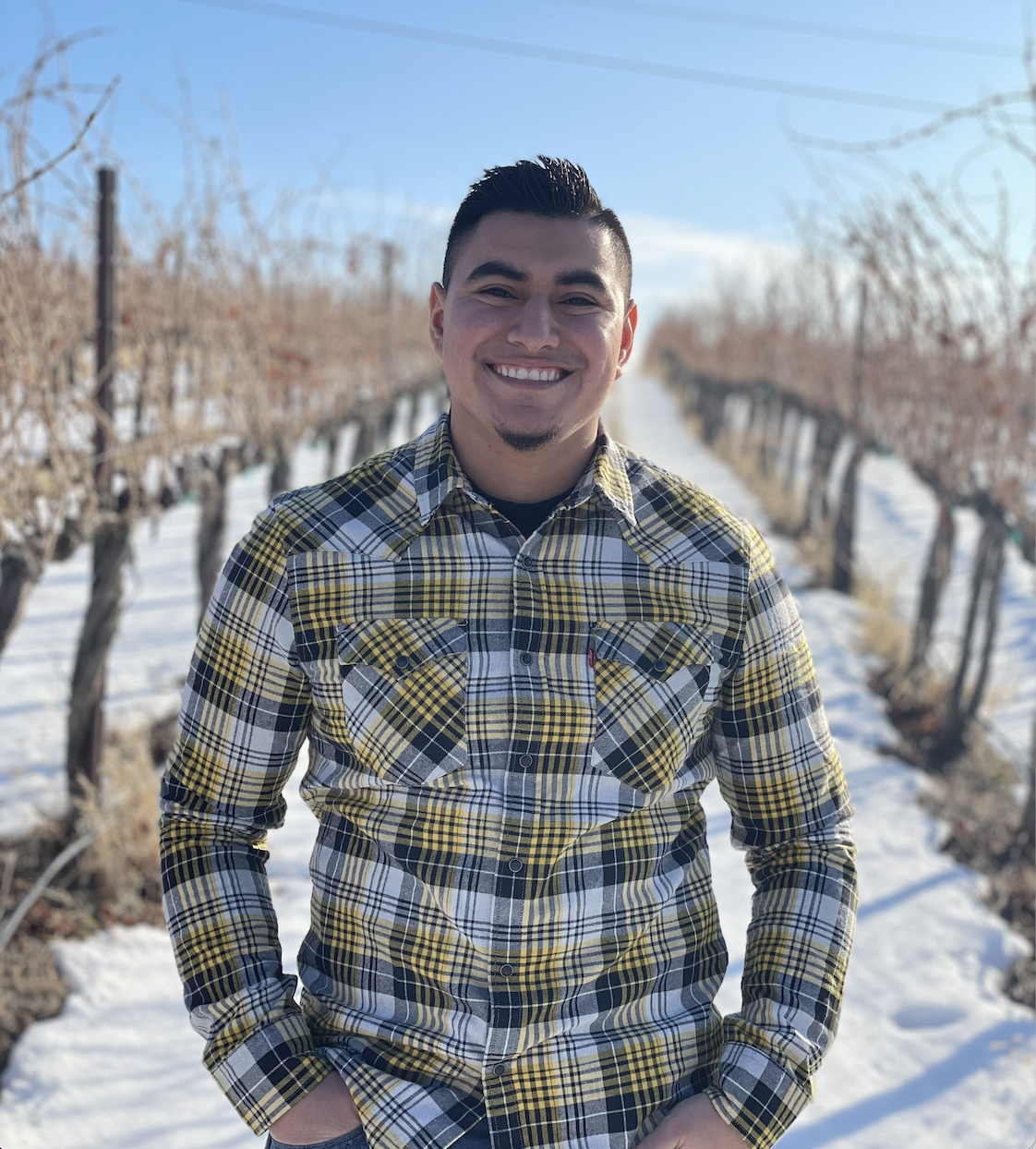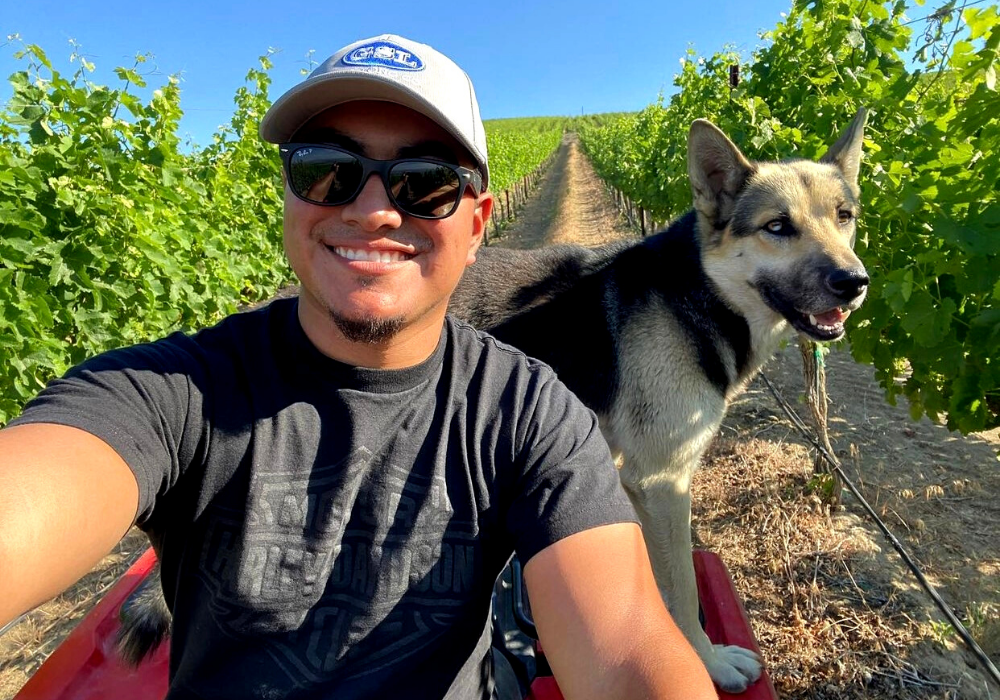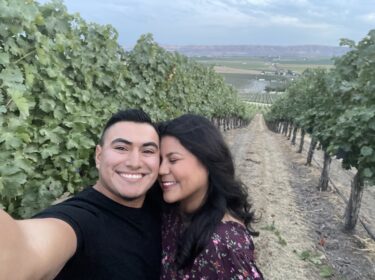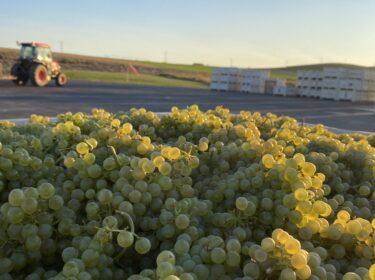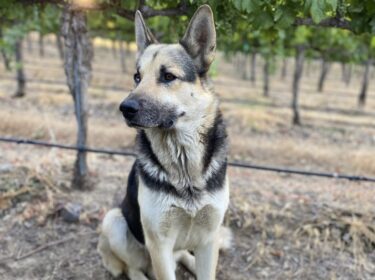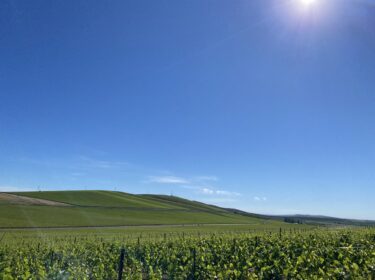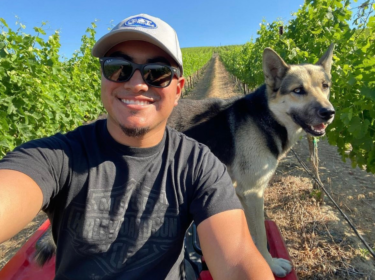“My heart was out here in the vines.”
Meet Dennis King Bonilla, Assistant Vineyard Manager at Stillwater Creek Vineyard in the Royal Slope AVA and Royal City, WA. Dennis moved to Royal City in 2000, when he was in first grade. “Both my mom and dad are migrant farm workers from El Salvador, and so they’ve been working in agriculture since they came to the States in the ’80s. And so here at this vineyard, I’ve been living here since first grade and working here since high school. Pulling out weeds and removing trunk suckers all summer. I remember back then thinking, I don’t want to be out here in the hot sun. So my dad told me to get myself a college degree.” Dennis did, and it just so happened to be at WSU’s Viticulture and Enology program. Prior to enrolling, Dennis contemplated joining the police force, but his sister made a lasting observation one day while they were out in the vines: “You look like you like being out here. Why don’t you study viticulture at WSU?” she asked. “I hadn’t thought of that,” he told us, “but hearing that from her, I knew she was right.”
I never imagined being out here and doing the work that I do.—Dennis King Bonilla, Stillwater Creek Vineyard
Translated by David Rodriguez
Washington Wine: Tell us a little bit about what you do, Dennis, and how long you’ve been where you are, and what a typical day looks like.
Dennis King Bonilla: I’m in Royal City, a small town in Eastern Washington. I grew up here. We moved here in 2000, when I was in the first grade. I’ve pretty much been here ever since because my dad was the foreman. Both my mom and dad are migrant farm workers from El Salvador, and so they’ve been working in agriculture since they came to the States in the ’80s. And so here at this vineyard, I’ve been living here since 1st grade and working here since high school. Pulling out weeds and removing trunk suckers all summer.
I remember back then thinking, I don’t want to be out here in the hot sun. So my dad told me to study and get a college degree. I actually wanted to be a police officer, or go into education. My sister and I are really close, and we were out here working one summer when we were in college. I was telling her about the vines and she tells me, “You look like you like being out here.” And I’m like, “I kind of do.” She goes, “Why don’t you study viticulture at WSU?” I had never thought of that. I thought about it after I talked to my sister. I looked into the program at WSU, and I ended up enrolling a month before school started, even though I was already enrolled in the education program at Heritage University. It was crazy and happened so quick, but I’m glad I made that decision.
My sister is my best friend. She knows me better than anyone else. Hearing that from her, I knew she was right. I never imagined being out here and doing the work that I do, so it’s been nice.
My sister is my best friend. She knows me better than anyone else.—Dennis King Bonilla
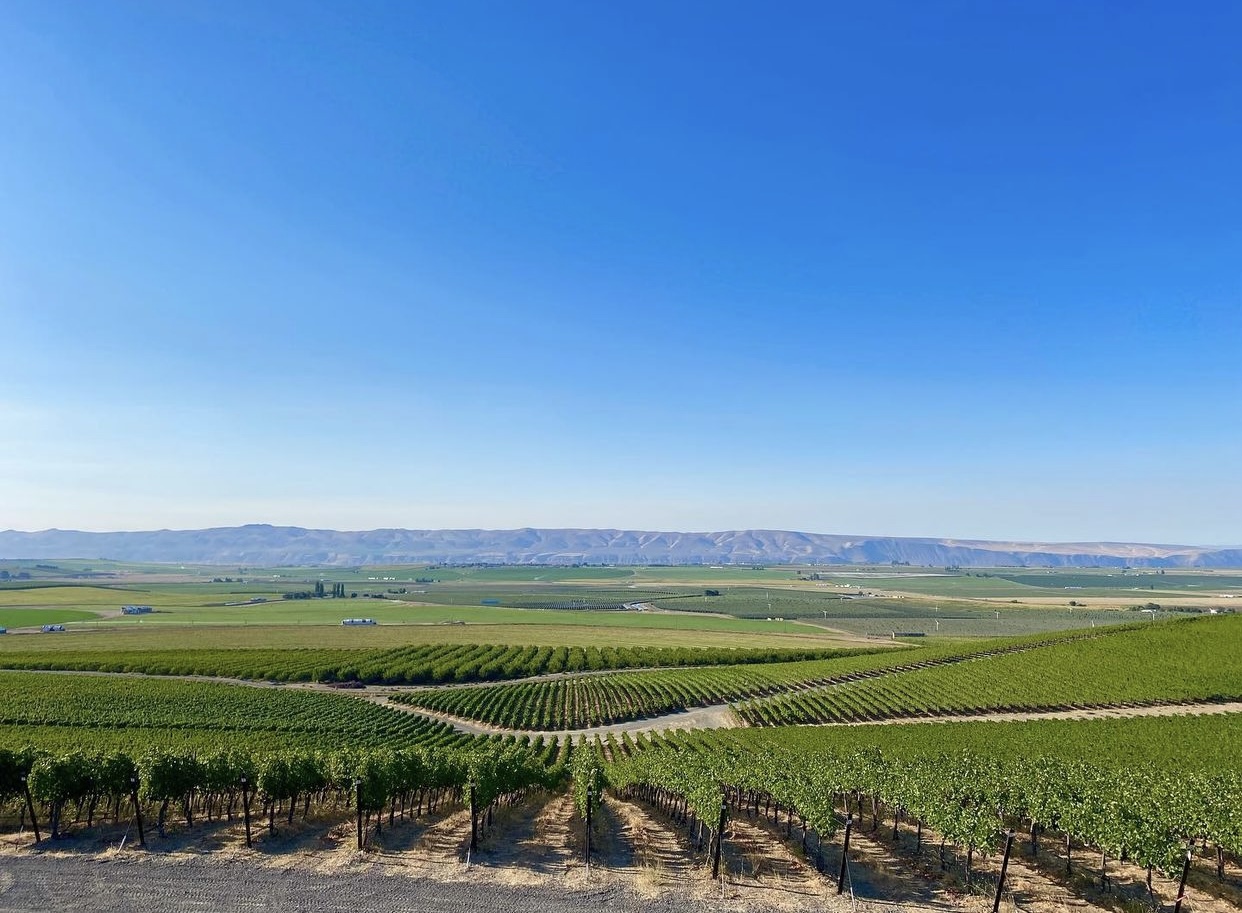
WW: What made you want to be a police officer, and what ultimately made you not pursue the police force?
Dennis: I was 19 years old at the time and I always had the plan of becoming a police officer. While I was at Community College, I became a Pasco Police Explorer with the Pasco Police Department. I had hands-on training with officers, ride-alongs, self-defence classes and attended two police explorer academies. I had a lot of fun. It would have been great to continue in that path. I gained much more respect for the work that police officers do. But at that time I think I became more intriqued with the science of grapevines.
And back then, I was thinking about staying in the Tri-Cities area, which is an hour and a half from here. That’s where my sisters were, and I knew eventually that’s where my parents were going to end up. I’m pretty close to my family, so I wanted to stay out in the Tri-Cities. Royal City is a bit smaller. We’re about 3000 people out there. My graduating high school class was 80 people.
WW: For someone who hasn’t been to Royal City or Royal Slope, how would you describe the land or the vineyards or the area?
Dennis: The Royal Slope is a south-facing slope with high elevation. The soils are sandy with silt and bedrock basalt. When you look south of the slope towards the Saddle Mountains, you can really see where the Missoula floods came through thousands of years ago. These floods shaped and deposited soils that many Washington vineyards are planted on to produce high quality fruit.
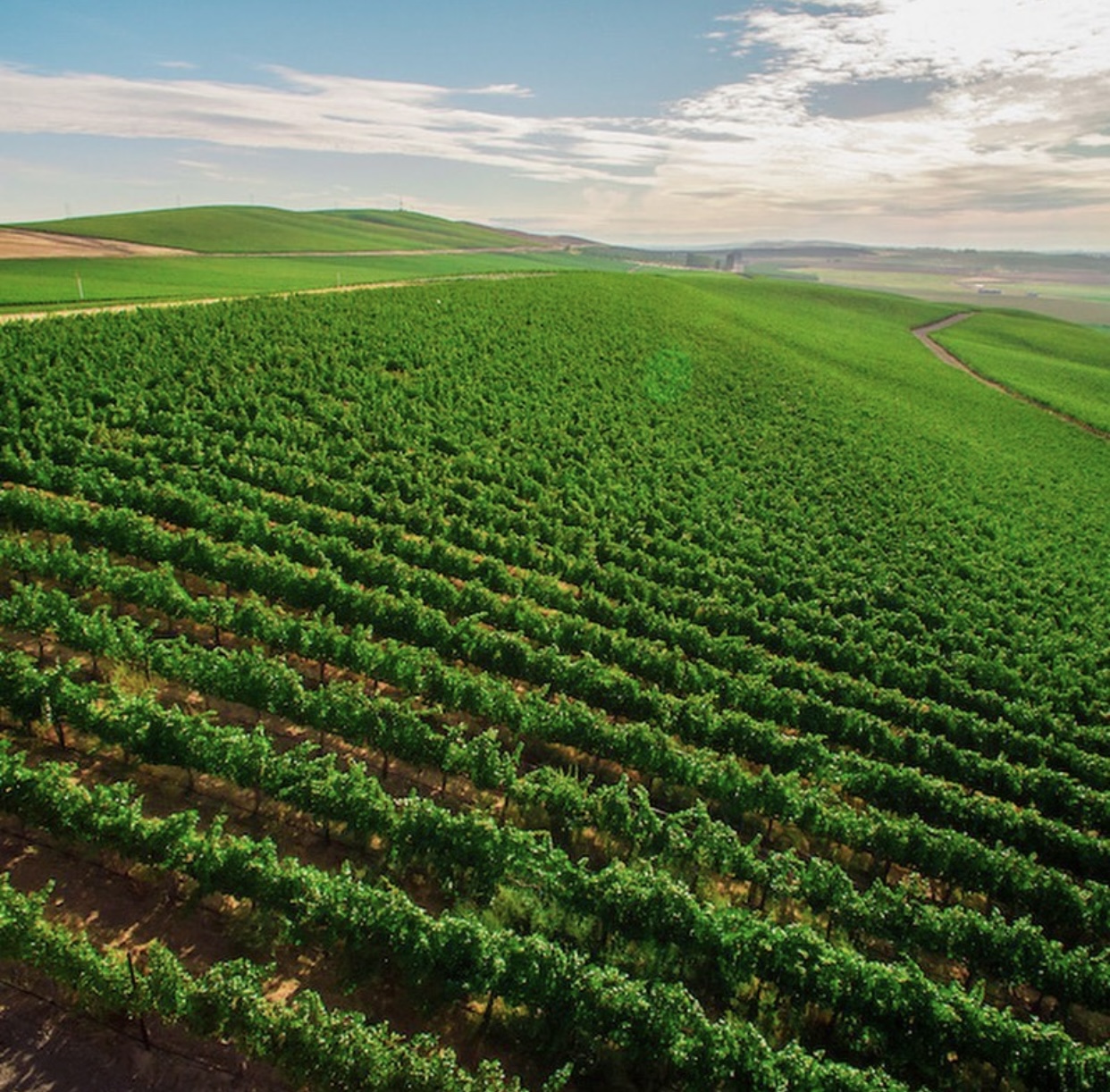
WW: Tell us a little about Royal Slope and Stillwater Creek.
Dennis: Royal Slope AVA (American Viticultural Area) is one of the newer AVA’s in the state. Royal Slope is about 155,000 acres, 1,900 planted acres and 13 vineyards. The diurnal temperatures and elevation (~1400’) are what really help these wines stand out. Warm days allow the fruit to ripen and cool nights retain the acitidy to hang fruit longer.
WW: You mentioned the V&E Program. Did you want to do both parts—the V and the E–or did you preference just viticulture?
Dennis: I went in knowing I wanted to focus on the vines, but since the program offered both, I did do quite a few winery internships in Prosser and Tri-Cities. I did enjoy it, but I think my heart was out here in the vines. After graduation, I was able to go to the Dominican Republic, a Ocoa Bay: a winery and the first vineyard planted in the Americas. This was the first time I could see how wine was made and grapes were grown outside of Washington State.
WW: What was that like: being able to work internationally and have a different region to compare with Royal Slope?
Dennis: It was great. I was able to see different varieties grown and different styles of wine. My favorite was a wine made from mango and passion fruit; at the time I didn’t even know that was possible. I was also fresh out of college, so I had many questions about what I learned and what I was seeing in the field or winery.
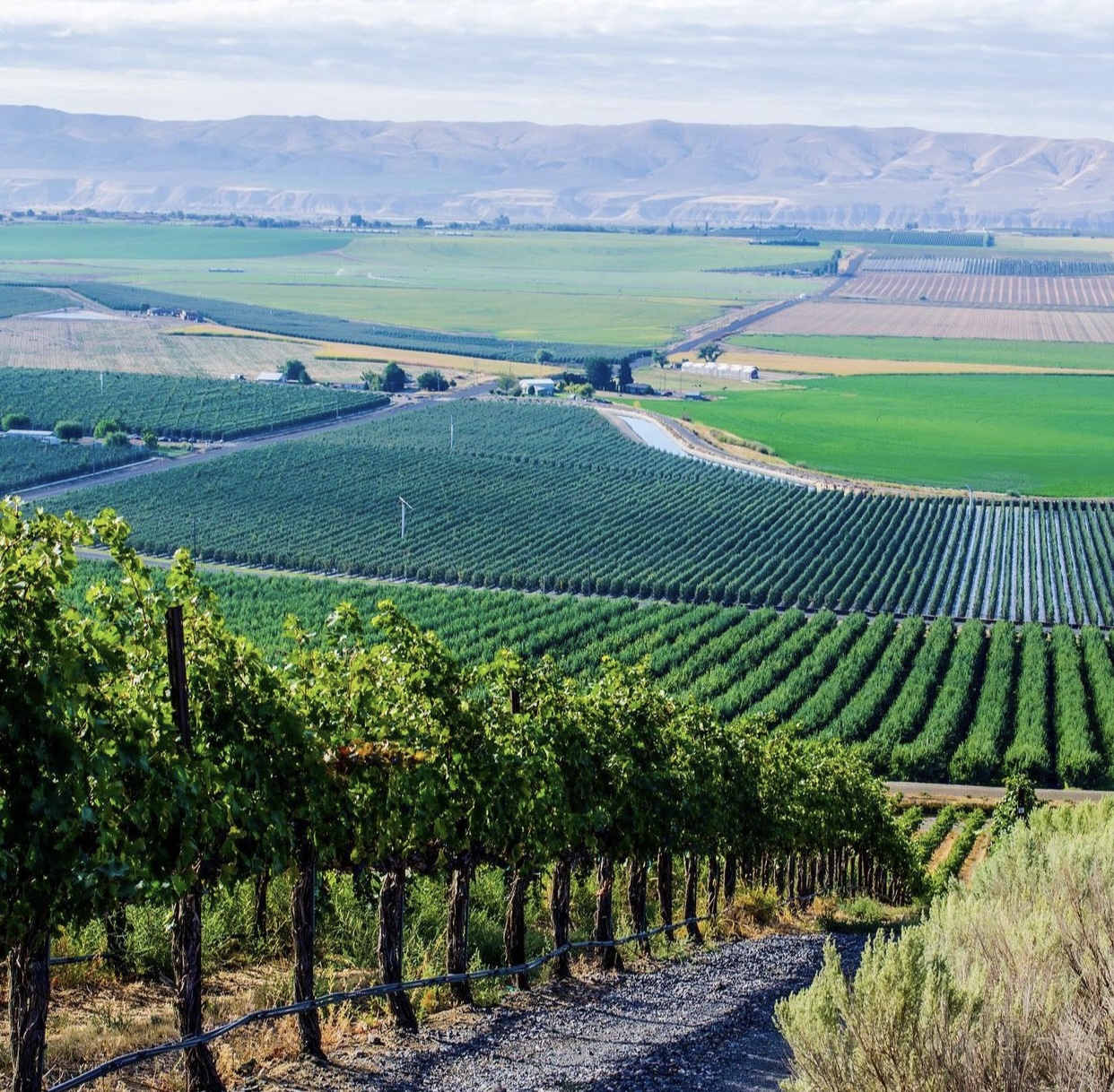
WW: Do you have a favorite part—time or activity—of the growing season?
Dennis: I like the beginning and the end. I like pruning and just being out there with the crew. Sometimes you’re pruning in the snow, which is tough. But we’re able to form the vine in the way that we want to. What we do from that point is going to affect everything that we do throughout the year. And harvest is just a nice environment out here with the crew. They seem to enjoy harvest a lot. It also feels nice to know all your hard work during the growing season was worth it.
WW: Speaking of the crew, how big is the crew out there? How long have you been in this role of Assistant Vineyard Manager?
Dennis: Our crew is about 25-30 during the growing season. During harvest we do need some extra people, though. And this is my first year as assistant manager. It’s been a big learning curve. There are so many details when it comes to grapevines and employee management that just aren’t taught in books. Most of the learning happens in the field and learning from mistakes.
It’s not just being here with the vines. We have all kinds of people out here: vineyard employees, winemakers, field-men, etc. and everyone plays an important role in getting the job done. That’s also what makes this job fun.
There are so many details when it comes to grapevines and employee management that just aren’t taught in books.—Dennis King Bonilla
WW: What are you most excited about in your work right now?
Dennis: Probably some of the new blocks that we’ve been planting. We’ve been planting a little Cabernet, and we’ve been trying some new projects with them. It’s exciting because I’m still learning, so just being able to see how it goes from planting to three, four years down the road and getting the first crop. There’s always so much to learn.
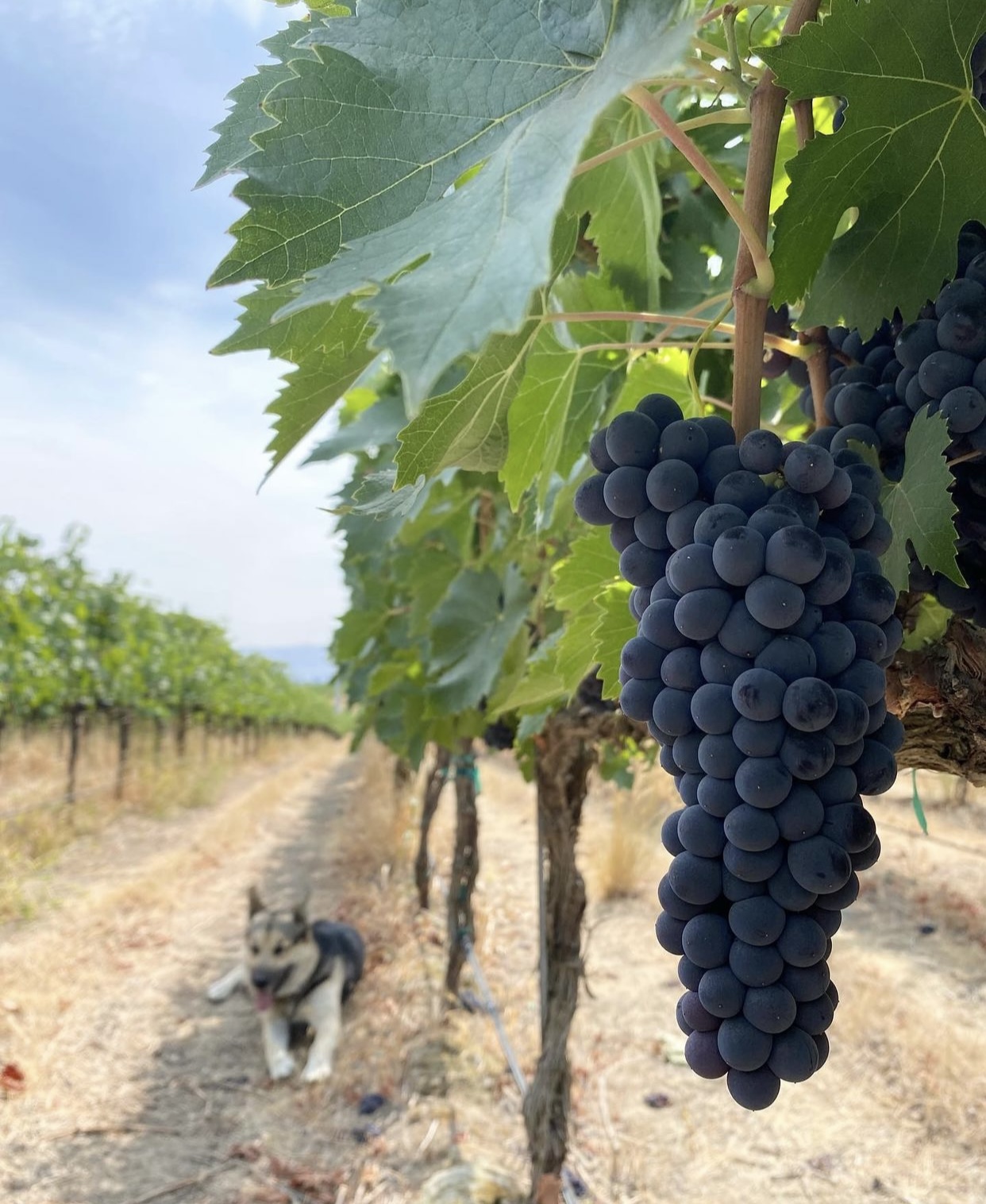
WW: Do you have free time? How to you balance all of your different responsibilities?
Dennis: I do, but it’s hard. During the days you have the focus on the crew and the vines. And during peak season, we have to make sure irrigation is going, and that we have sprayers going at night. We also have to make sure that those people are okay during the night.
At times, it does feel like a lot, but we work through it together. There’s a lot of people out here. It’s never just you on your own. There’s a lot of support. Right now, I’m usually up by 4:00 am. The crew starts at 5:00 or 5:30. When it’s as hot as it was this year, though, the crews are not able to work very many hours. When we were in the high hundreds, the crew was getting off at 9:00 AM. It was already 90 degrees.
There’s a lot of people. It’s never just you on your own. There’s a lot of support.—Dennis King Bonilla
WW: Do you have any morning rituals? What helps you wake up every day that early?
Dennis: I just need a bottle of water. Ask me that same question in a couple of years though, we’ll see if that changes.
WW: What things keep you going outside of wine? And what keeps you going when times are busy?
Dennis: I like working out. But right now, it’s so hard. We wake up early, work all day, and then at the end of the day, I just feel tired. But I like working out, and spending time with my family. It’s hard right now because I live out here in Royal City, and all of my family are in the Tri-Cities.
I did just get married recently. That was two months ago and my wife has been living out here, so spending time with her has been my focus. And what else? I volunteer for the fire department; I’m an EMT. When I have time, during the afternoon or even at night sometimes, I’ll respond to calls when I can. Not too much right now, though.
WW: It sounds like you’re a first-responder in many senses of the word.
Dennis: Ha, yeah. I think so.
WW: What do you think of the community out there in Royal City in Royal Slope, or the community of the wine industry overall?
Dennis: Out here in the Royal Slope, I like it because it’s a small town, so everyone’s close, and friendly. If you need help, there’s going to be help. There’s a lot of support, which is good. There are also many knowledgeable people in the industry willing to help and mentor. That is very important as a whole to move forward and make each other better.
If you need help, there’s going to be help. That’s very important: as a whole, to move forward and make each other better.—Dennis King Bonilla
WW: A final and random question. What’s your favorite non-musical sound? You can list up to three.
Dennis: Non-musical sounds? That’s interesting. I like the sound of rain, and not a sound, but I like when it rains, the smell of the dirt. Birds chirping and sound of waves, or the sound of when a bag of chips open.
WW: I’m with you.
Dennis: Yeah. That moment when you open a bag of chips and you’re about eat it. It’s the best sound.
WW: What kind of chips, though?
Dennis: Cheetos. Hot Cheetos or nacho cheese Doritos with the cheese dip.
That moment when you open a bag of chips and you’re about to eat it. It’s the best sound.—Dennis King Bonilla, Stillwater Creek Vineyard
